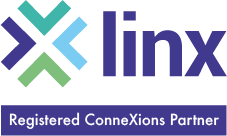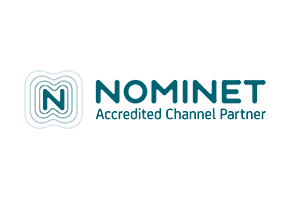
Businesses are increasingly expanding their operations across multiple locations. Whether you have branch offices, remote teams, or partners scattered throughout the UK, maintaining seamless connectivity between all sites is crucial for efficient collaboration, data sharing, and business continuity.
However, navigating the various multi-site connectivity options can be a daunting task, especially with the ever-evolving technology landscape. In this blog post, we’ll explore some of the most popular solutions available in the UK market, their pros and cons, and how Exascale can help you choose and implement the best fit for your organisation’s needs.
Leased Lines
Leased lines, also known as dedicated lines or private lines, are physical connections established between two or more locations using cables owned and maintained by a telecommunications provider. These lines offer a direct, private, and secure connection, ensuring reliable and consistent data transfer speeds.
Pros:
- Dedicated bandwidth with guaranteed speeds and low latency
- High level of security and privacy
- Reliable and consistent performance
Cons:
- Expensive, especially for long-distance connections
- Limited flexibility and scalability
- Requires physical infrastructure installation and maintenance
Best suited for businesses with high-bandwidth requirements, stringent security needs, and a stable number of locations.
Fibre-to-the-Premises (FTTP)
FTTP is a high-speed internet connection that uses fibre-optic cables to deliver broadband directly to a business premises. Unlike traditional copper-based connections, FTTP offers faster and more reliable internet speeds, making it an attractive option for businesses with multiple locations.
Pros:
- Ultra-fast and reliable internet speeds
- Scalable bandwidth to accommodate growth
- Consistent performance, regardless of distance or location
Cons:
- Limited availability in some areas of the UK
- Potential cost and installation complexities
- Reliance on a single internet service provider (ISP)
Best suited for businesses with multiple locations in areas with FTTP coverage, high bandwidth demands, and a need for reliable and future-proof connectivity.
SoGEA Broadband
SoGEA Broadband internet is a widely available and cost-effective connectivity option for businesses with multiple locations. It uses a combination of technologies, such as ADSL, VDSL, and cable, to provide internet access over existing infrastructure.
Pros:
- Widely available and cost-effective
- Scalable bandwidth options
- Suitable for businesses with moderate connectivity needs
Cons:
- Shared infrastructure can lead to performance variations
- Limited upload speeds in some cases
- Potential security concerns without additional measures
Best suited for businesses with multiple locations and moderate bandwidth requirements, where reliability and cost-effectiveness are priorities.
Software-Defined Wide Area Network (SD-WAN)
SD-WAN is an emerging technology that simplifies the management and operation of wide area networks (WANs). It uses software-defined networking (SDN) principles to intelligently route traffic across multiple WAN connections, including MPLS, broadband internet, and 4G/5G cellular links.
Pros:
- Intelligent path selection for optimal performance and failover
- Bandwidth optimization and cost savings by leveraging internet links
- Centralized management and visibility across the entire network
- Simplified deployment and scalability
Cons:
- Complexity in integrating with existing network infrastructure
- Potential vendor lock-in and compatibility issues
- Requires upfront investment in SD-WAN hardware and software
Best suited for businesses with multiple locations, varying connectivity needs, and a desire for increased network flexibility, visibility, and control.
Multiprotocol Label Switching (MPLS)
MPLS is a routing technique that provides a private, secure network over a service provider’s existing infrastructure. It establishes virtual private networks (VPNs) between multiple locations, allowing businesses to connect their sites as if they were on a single, private network.
Pros:
- Secure and reliable connectivity
- Scalable bandwidth and ability to prioritize traffic
- Potential cost savings compared to dedicated leased lines
- Simplified management through a single provider
Cons:
- Performance can be affected by network congestion
- Dependency on the service provider’s network quality
- Potential complexity in managing and configuring MPLS networks
Best suited for businesses with multiple locations, varying bandwidth needs, and a desire for a managed service with Quality of Service (QoS) capabilities.
4G/5G Mobile Connectivity
With the advent of 4G and the rollout of 5G networks across the UK, mobile connectivity has become a viable option for businesses with multiple locations. These connections can be used as primary links or as backup solutions for added redundancy.
Pros:
- Widespread availability and mobility
- Quick deployment and scalability
- Potential cost savings compared to fixed-line solutions
Cons:
- Potential performance and reliability limitations
- Data usage caps and associated costs
- Security concerns without proper measures in place
Best suited for businesses with remote or temporary locations, or as a backup solution for added redundancy in critical applications.
At Exascale, we understand the complexities involved in connecting multiple business locations across the UK. With years of experience and a deep understanding of the latest technologies, we are well-equipped to guide you through the selection and implementation of the most suitable multi-site connectivity solution for your organisation.
Exascale: Your Trusted Multi-Site Connectivity Provider
Our team of experts will work closely with you to assess your specific requirements, including bandwidth needs, security concerns, scalability plans, and budget constraints. We’ll then recommend the best solution or combination of solutions, whether it’s leased lines, FTTP, broadband, SD-WAN, MPLS, 4G/5G, or a tailored hybrid approach.
What sets us apart is our commitment to providing end-to-end support, from initial consultation and design to deployment and ongoing management. We leverage our partnerships with leading telecommunications providers and cutting-edge technology vendors to deliver reliable, secure, and cost-effective multi-site connectivity solutions.
With Exascale as your trusted partner, you can focus on your core business operations while we ensure seamless connectivity across all your locations, enabling efficient collaboration, data sharing, and business continuity.
Unlock the full potential of multi-site connectivity for your UK business with Exascale. Contact us today to schedule a consultation and take the first step towards a seamlessly connected future.





